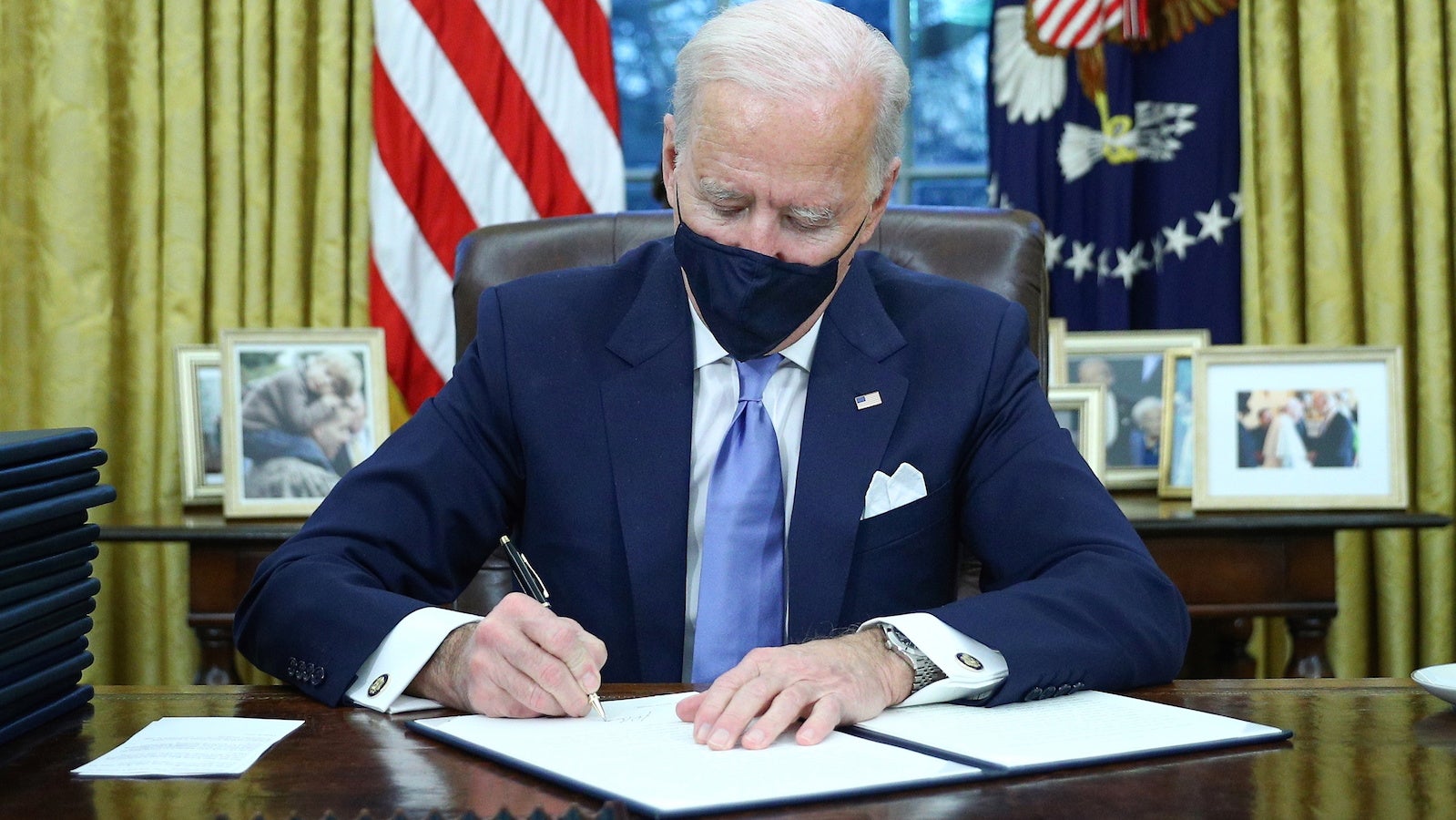What Biden will do about US student loan debt
If you’re among the 42 million Americans with federal student loan debt, here’s a spot of good news: president Joe Biden has extended forbearance on payments through the end of September. This continues the Covid-19 relief first enacted by former secretary of education Betsy DeVos and then passed by Congress in March of last year, intended to lessen the financial burden faced by Americans during the economic crisis.


If you’re among the 42 million Americans with federal student loan debt, here’s a spot of good news: president Joe Biden has extended forbearance on payments through the end of September. This continues the Covid-19 relief first enacted by former secretary of education Betsy DeVos and then passed by Congress in March of last year, intended to lessen the financial burden faced by Americans during the economic crisis.
But Americans’ $1.7 trillion in student loan debt is a driver of inequality and a drag on the economy even in comparatively stable times.
Research suggests that student loan debt exacerbates the racial wealth gap (pdf): One 2019 study (pdf) found that 20 years after starting school, the median Black borrower still owed $18,500 in federal student loan debt, while the median white borrower owed just $1,000.
Student loan debt has also been linked to lower homeownership rates, less consumer spending, and fewer new small businesses (it’s tough to take a gamble on entrepreneurship when you’re still paying off college).
So what are the chances Biden will make more moves on student loan relief? Here’s what we know so far about his plans.
What Biden is definitely doing:
On his first day in office Wednesday, Biden directed the Education Department to continue the suspension of interest and payments on federal student loans until at least Oct. 1. The government will also continue the pause on collections of federal student loans in default.
Brian Deese, Biden’s new director of the National Economic Council, told reporters that borrowers shouldn’t have to choose between paying for groceries and paying off debt: “In this moment of economic hardship, we want to reduce the burden of these financial trade-offs.”
It’s certainly true that loan payments can take a big bite out of borrowers’ incomes. The average monthly payment for borrowers is $393, and the median monthly payment is $222, according to a 2017 report from the Federal Reserve. A 2019 report from TD bank found that US borrowers put an average 20% of their monthly take-home pay toward student loan debt.
What Biden may do:
On the campaign trail, Biden supported canceling $10,000 of federal student loan debt per person, and Deese confirmed to reporters that Biden still wants this done through Congressional legislation.
Nearly 60% of Americans support the $10,000 forgiveness proposal, according to a recent poll from Morning Consult.
Biden’s higher education proposals, released during his campaign, also included an income-based repayment plan that would be made available to existing borrowers as well as new ones. Under it, Americans earning more than $25,000 a year would put 5% of their income to loans that would be forgiven (tax-free) after 20 years. People who make less than $25,000 a year would receive interest-free forbearance on their loans.
In addition, Biden’s plan said that he would introduce legislation to provide two years of tuition-free community college to all Americans (an idea first proposed in 2015 by Biden and then-president Barack Obama) and to make public colleges and universities free to families with incomes under $125,000.
What Congress Democrats want Biden to do
Some of Biden’s former Senate colleagues will be pushing him to pass more sweeping student debt relief. Democratic senators Elizabeth Warren and Chuck Schumer introduced a resolution in September of last year asking the new president to cancel up to $50,000 of federal student debt per person. The resolution says that under the Higher Education Act, the president has the authority to direct the secretary of education to cancel student debt. House Democrats led by Ayanna Pressley, Maxine Waters, and Ilhan Omar introduced a similar resolution in December.
But some legal experts aren’t sure an executive order would hold up in court, and Biden himself said in December that he thinks his authority on the matter is questionable. That would leave it up to Congress to push through bigger-ticket loan forgiveness—but with a split Senate and Democrats in narrow control of the House, there may not be sufficient support.